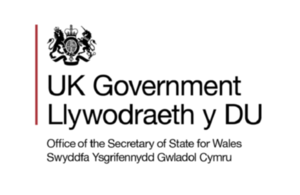Prime Minister: My One Nation government will close the gender pay gap
Secretary of State for Wales: Confronting workplace gender barriers makes good business sense

-
The National Living Wage will help close the gender pay gap
-
Companies with more than 250 employees will have to publish their pay gap
-
New figures show FTSE 100 companies have met target for 25% of board members to be women
The Prime Minister will today (Tuesday 14 July) set out his ambition to “end the gender pay gap in a generation”.
There are now more women-led businesses than ever before, a record number of women in work, and the gender pay gap is at an all-time low - but the Prime Minister will say there is more to do.
In Wales, some 667,000 women are now employed – an increase of 34,000 since May 2010.
Today, the Prime Minister will say there is more to do.
The new National Living Wage, which starts next April at £7.20 and will reach over £9 by 2020, will primarily help women - who tend to be in lower paid jobs - and will help close the gender pay gap.
The National Living Wage was part of a Budget in which the Government made clear its commitment to rebalancing the economy by moving from a high-welfare, high-tax, low-pay economy into a lower-welfare, lower-tax, higher-pay society.
Today the Government is announcing further steps to tackle the gender gap.
-
Every company with more than 250 employees will have to publish the difference between the average pay of their male and female employees.
-
A consultation, launched today, will look at the detail of how the new gender pay gap regulations will be designed, including what, where and when information will be published. It will also seek views on what more can be done to encourage girls to consider the widest range of careers, support parents returning to work and help women of all ages reach their full potential and have the security of a well-paid job.
This comes as the UK’s FTSE 100 has reached the Lord Davies’ target of 25 per cent of board positions being filled by women - set in 2011.
Writing in The Times today, the Prime Minister said:
Today I’m announcing a really big move: we will make every single company with 250 employees or more publish the gap between average female earnings and average male earnings. That will cast sunlight on the discrepancies and create the pressure we need for change, driving women’s wages up.
This goes back to what we announced at the Budget last week. Our aim is to fundamentally rebalance our economy – to transform Britain from a high-welfare, high-tax, low-pay economy into a lower-welfare, lower-tax, higher-pay society. Higher pay is something we want for everyone. That is why the Chancellor announced the National Living Wage, which starts next April at £7.20 and will reach over £9 by 2020. This will primarily help women, who tend to be in lower paid jobs. It will help close the gender pay gap. But we need to go further, and that’s why introducing gender pay audits is so important.
Transparency, skills, representation, affordable childcare – these things can end the gender pay gap in a generation. That’s my goal.
This Government is providing a wide programme of support for women in the workplace, introducing 30 hours of free childcare, 20.6 million employees now able to benefit from flexible working, and the new careers service putting businesses in the lead and showing schoolgirls that no profession is off limits.
Secretary of State for Wales Stephen Crabb said:
In Wales, we have some of the best and brightest female business talent. At every level and in every role, they need to know that their contributions to the economic recovery in Wales are valued. Today’s announcement builds on policies such as the National Living Wage and schemes like the Work Programme that confront the barriers holding women back from succeeding in the world of work.
This government is on the side of all working people; we believe in supporting the aspirations of those who want to get on. The prize of doing so will be a stronger economy and more opportunities for this generation of women and the next.
In the last year, the number of self-employed women in Wales has increased by 2,000 to 58,000.
Abi Carter is the founder of Forensic Resources Ltd – a Cardiff based forensic science consultancy firm that offers expert witness services to legal teams and insurance firms across the UK.
Ms Carter said:
It is sometimes the case that women hesitate before making that leap into the world of business and entrepreneurship. For women to have the courage to do so, it is crucial that they have the same support, approbation and possibilities available to them as their male counterparts. It is our collective responsibility to empower women to succeed in the workplace, to provide them with the support they need to do so, so we can harness the wealth of talent they can bring to the business world.